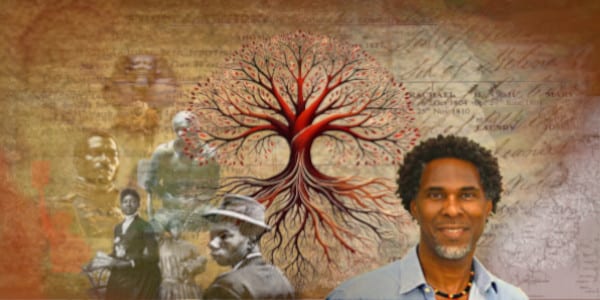
Black History and Ancestry Talks with Paul Crooks
Join us for an introductory session by renowned genealogist and historian Paul Crooks. Designed as a taster for a season of talks coming in Spring 2025, this event gives a glimpse into the powerful stories and in-depth explorations of Black history and ancestry topics that Paul will present throughout the new year.
In this session, Paul introduces key themes he’ll cover, including tracing African Caribbean and African American roots, uncovering the origins of colorism, the impact of resistance movements like the Jamaican Maroons, and the role of figures like Toussaint L’Ouverture in reshaping history. Through personal insights and historical discoveries, Paul reveals how understanding Black history and ancestry can empower individuals and strengthen communities.
This talk is an invitation to connect with your heritage and discover the stories that continue to shape Black identities today. Whether you’re curious about genealogy, new to family history, or passionate about learning more, join us to see what’s in store for Spring 2025. Reserve your spot and start your journey with this insightful introduction to Black history and ancestry.
About The Speaker
Paul Crooks is a trailblazing genealogist and published author with a specialist interest in Black ancestry. He pioneered Black genealogy research in the 1990s, tracing his own family history from London back six generations to ancestors who were enslaved on a sugar plantation in North America 200 years ago. Paul gained national recognition with his acclaimed historical novel “Ancestors” based on his family’s story, and he has appeared as an expert on Black British genealogy on “Who Do You Think You Are?” with Moira Stuart. His second book “A Tree Without Roots” is a seminal guide to tracing Black British ancestry.
Paul is credited with inspiring an upsurge of interest in Black and British genealogy and has spawned an industry in African Caribbean genealogy.
Comments Are Welcome
Note: We moderate submissions in order to create a space for meaningful dialogue, a space where museum visitors – adults and youth –– can exchange informed, thoughtful, and relevant comments that add value to our exhibits.
Racial slurs, personal attacks, obscenity, profanity, and SHOUTING do not meet the above standard. Such comments are posted in the exhibit Hateful Speech. Commercial promotions, impersonations, and incoherent comments likewise fail to meet our goals, so will not be posted. Submissions longer than 120 words will be shortened.
See our full Comments Policy here.